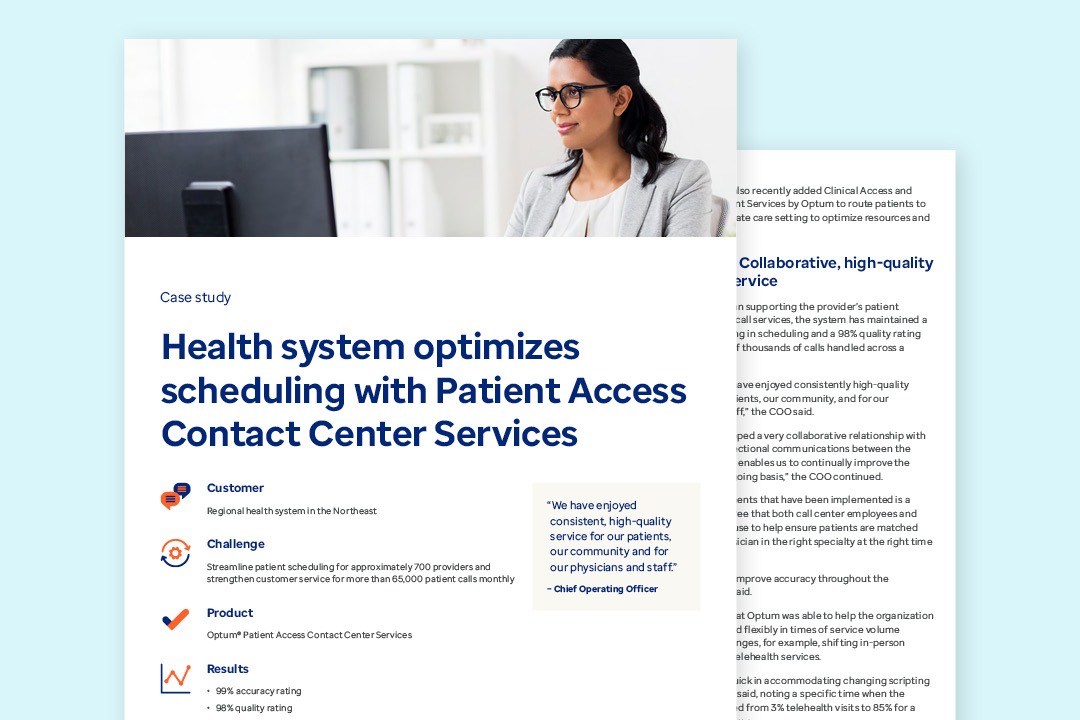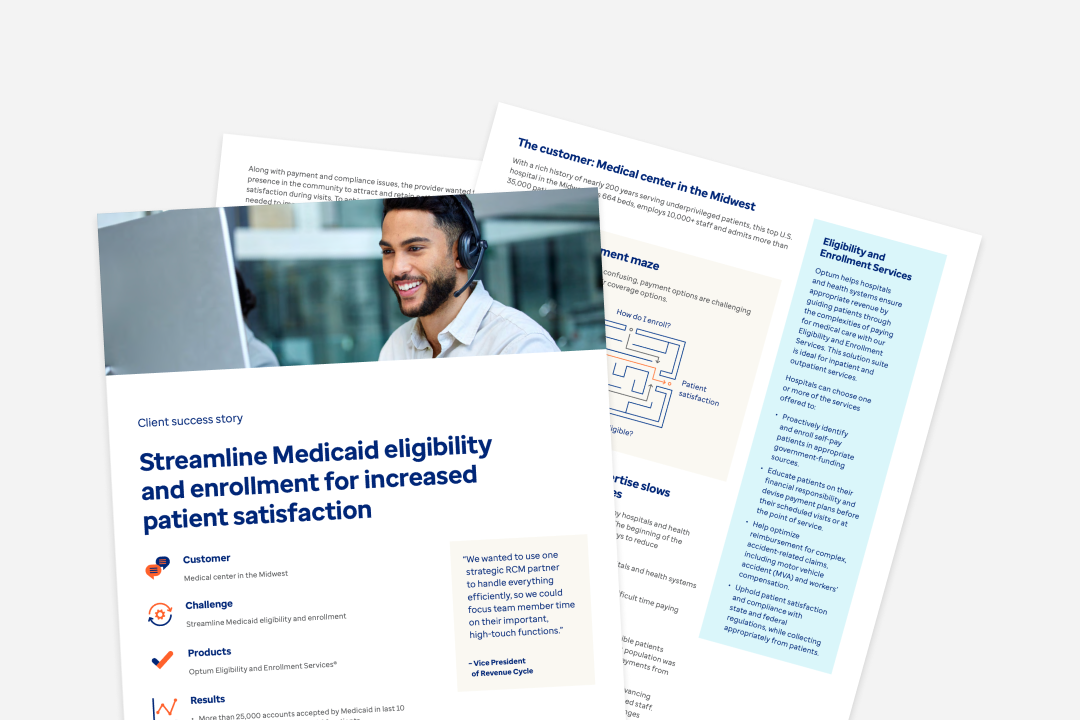Using AI in clinical support and revenue cycle management
With over 25 years of clinical data exposure, our AI-driven solution is built on robust machine and deep learning models (ML) and includes natural language processing (NLP) and understanding component.
CLI is the technology powering multiple products and capabilities reliant on extracting and comprehending unstructured medical information. Some of these include Optum® Enterprise Computer-Assisted Coding (CAC) and Clinical Documentation Improvement (CDI) 3D, and Optum® Case AdvisorTM.

Clinical intelligence helps improve accuracy and efficiency

Coding automation
CLI creates efficiencies in identification of diagnoses and procedures documented in medical record narratives by suggesting compliant billing codes for hospital and physician services.
Coverage includes concepts captured in:
- ICD-10-CM
- ICD-10-PCS (with patented partial code suggestion)
- CPT including E/M
- HCPCS
- SNOMED
- RxNorm
- Custom concepts

Risk and quality capture
CLI drives accurate and complete capture of the clinical facts needed to report quality and performance measurement requirements, including:
- HCC codes with MEAT criteria validation
- HEDIS measure capture, including numerator, denominator and exclusion criteria
- MIPS HCPCS assignment
- Patient Safety Indicator (PSI) identification
- Hospital Acquired Condition (HAC) and Infection (HAI) flagging

Decision Support
Hospital level of care status determination
CLI helps provide accurate and consistent decision support to utilization review, case management and physician advisor teams.
When patients come to the hospital, providers must determine the appropriate care setting (i.e., inpatient or observation). CLI captures and coordinates the appropriate clinical risk factors documented in medical records to provide accurate and consistent decision support. From initial admission status to discharge screening, CLI allows providers to make determinations more quickly and consistently and provides transparency for payer approval, including admission authorization support.

Prior authorization
Determine eligibility for procedures, medications and durable medical equipment.
CLI surfaces and analyzes criteria in medical records to determine eligibility for procedures, medications and/or durable medical equipment. CLI matches the policies within benefit plans and provides a recommendation for authorization or an alert for missing documentation. This streamlines the prior authorization process by allowing providers and payers to focus only on missing documentation, which expedites the decision process accurately and consistently, allowing the patient to be treated more efficiently with lessened denial risk for the provider.

Research data
Population health management and clinical research
Analyze clinical content for any research use case.
CLI mines clinical content to aid in community wellness initiatives such as investigating social determinants of health (SDOH) and monitoring disease progression in at-risk populations. CLI can identify SDoH criteria outside of industry-recognized ICD-10-CM codes, identify and model at-risk populations and much more. CLI brings consistency to the process so providers aren’t missing out on any facts they need to make informed decisions and drive improved, equitable outcomes.

Analytics and reporting
Custom analytics and reporting
Understand, prioritize and automate with clinical analytics.
CLI identifies and collates clinical information to present a customized view to the end user. CLI reports are tailored to the end user’s specifications and can be used to transform any clinical concept into quantifiable, reproducible and transparent data.
Key benefits
Benefits of using Clinical Language Intelligence
Creates documentation review efficiencies
CLI provides a visualization into the source data.
Produces understandable decision support
CLI offers a traceable presentation of clinical findings.
Reduces implementation costs
Utilize cloud integrations for a faster ROI.
Trusted and experienced AI technologies
We are currently processing over 150 million encounters annually for over 2,100 locations.
Hybrid AI (H-AI)
Cutting-edge AI, including ML and generative models, are layered over the clinical knowledge base compiled by medical experts over 25 years.
Industry insights

Case study
See how a hospital streamlined scheduling for about 700 providers and strengthened customer service for over 65,000 patient calls monthly.

Article
Optum won the 2023 North American Enabling Technology Leadership Award.

Case study
The rise of healthcare consumerism has prompted many hospitals and health systems to rethink their patient satisfaction strategies.
